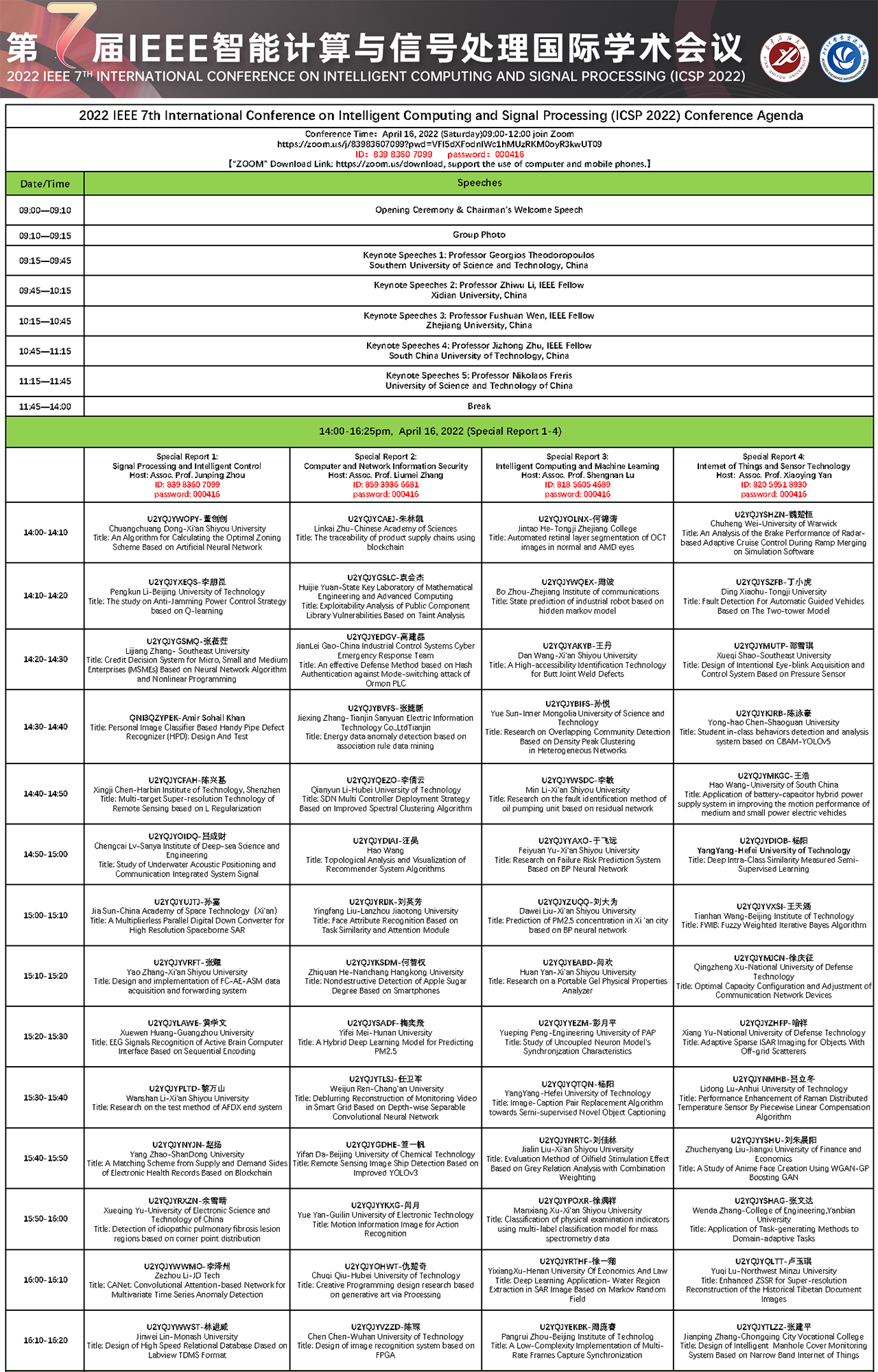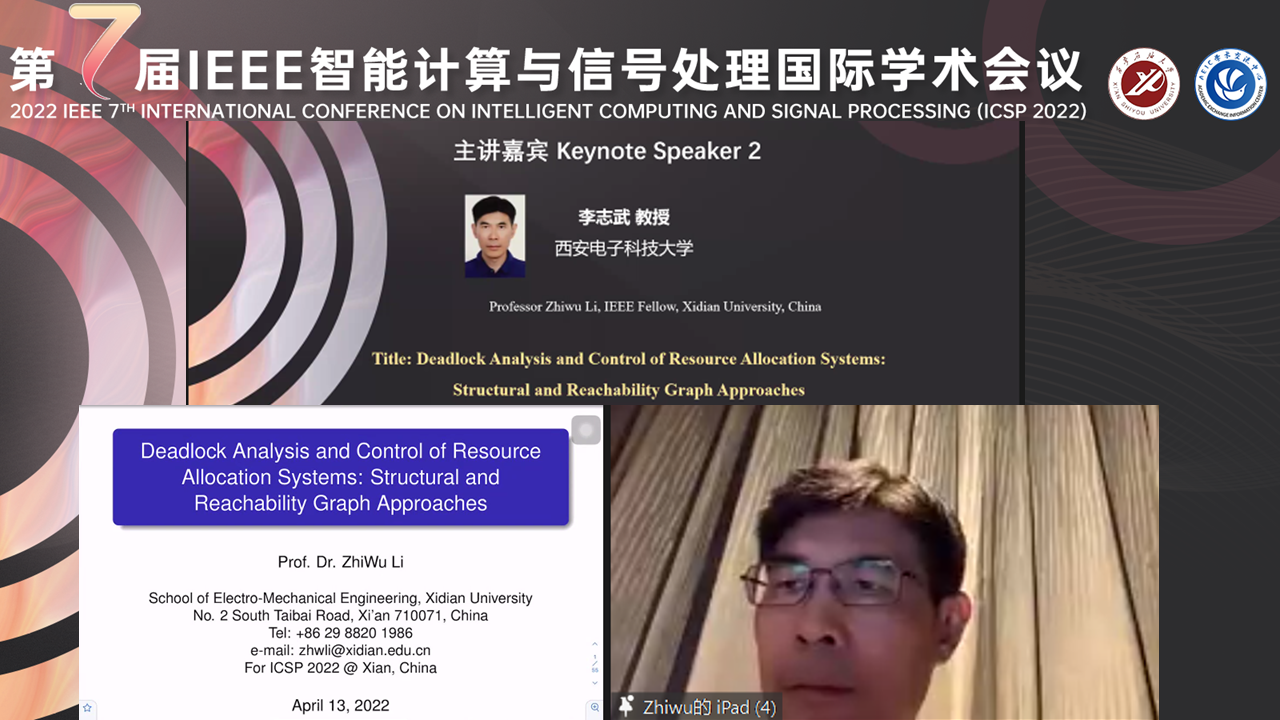2022 IEEE 7th International Conference on Intelligent Computing and Signal Processing (ICSP 2022) |
2022 IEEE 7th International Conference on Intelligent Computing and Signal Processing (ICSP 2022) has been held successfully from April 15-17, 2022 on online conference. There were about 850 delegates from each city that attended the conference, several experts in related fields were invited to give keynote speeches. The in-depth discussions among the attendees effectively advanced the academic exchange. |
| *ICSP 2022: EI Compendex Indexing | Scopus Indexing | IEEE Xplore Indexing |
| Group Photo |
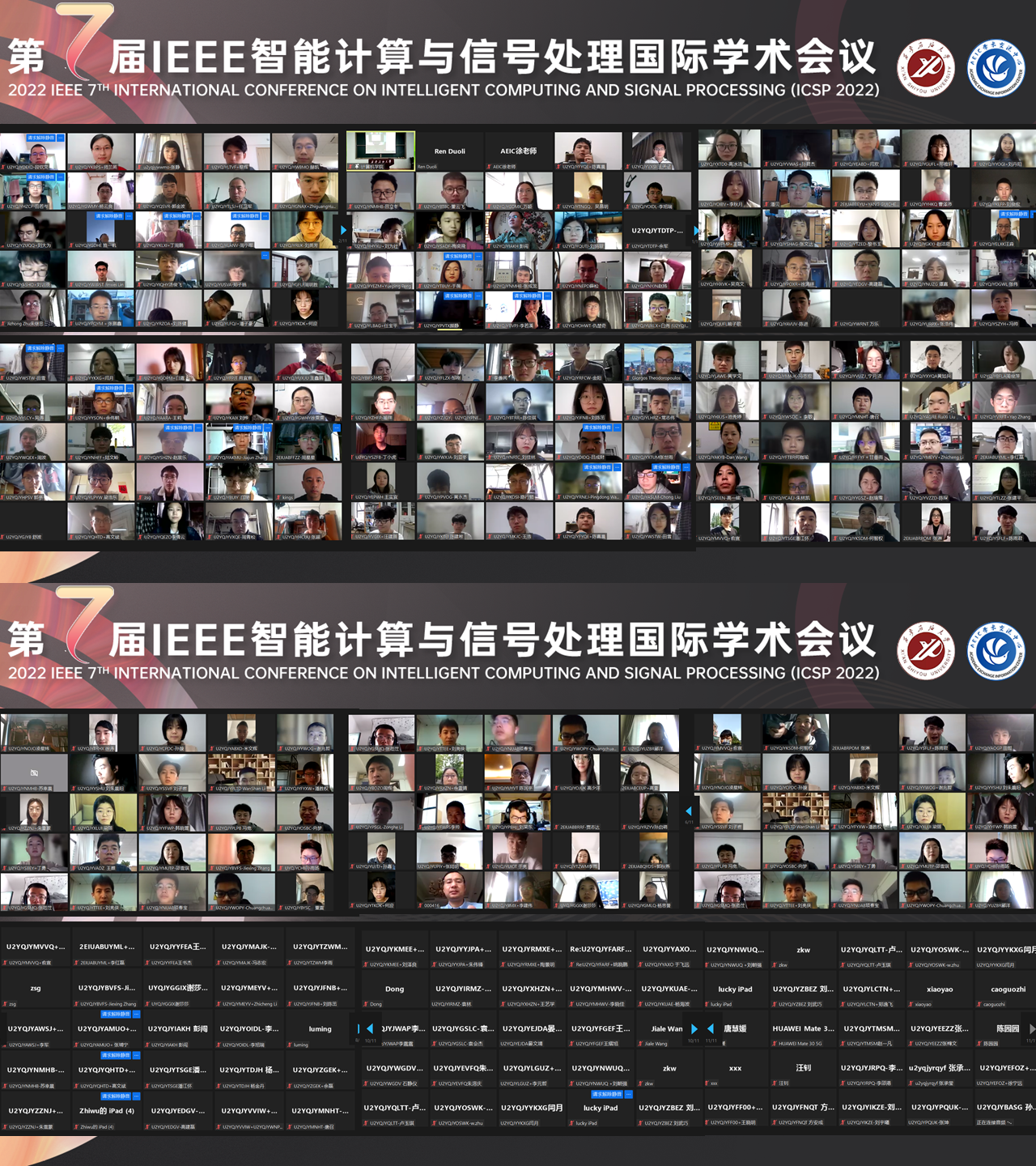 |
| Welcome Speech |
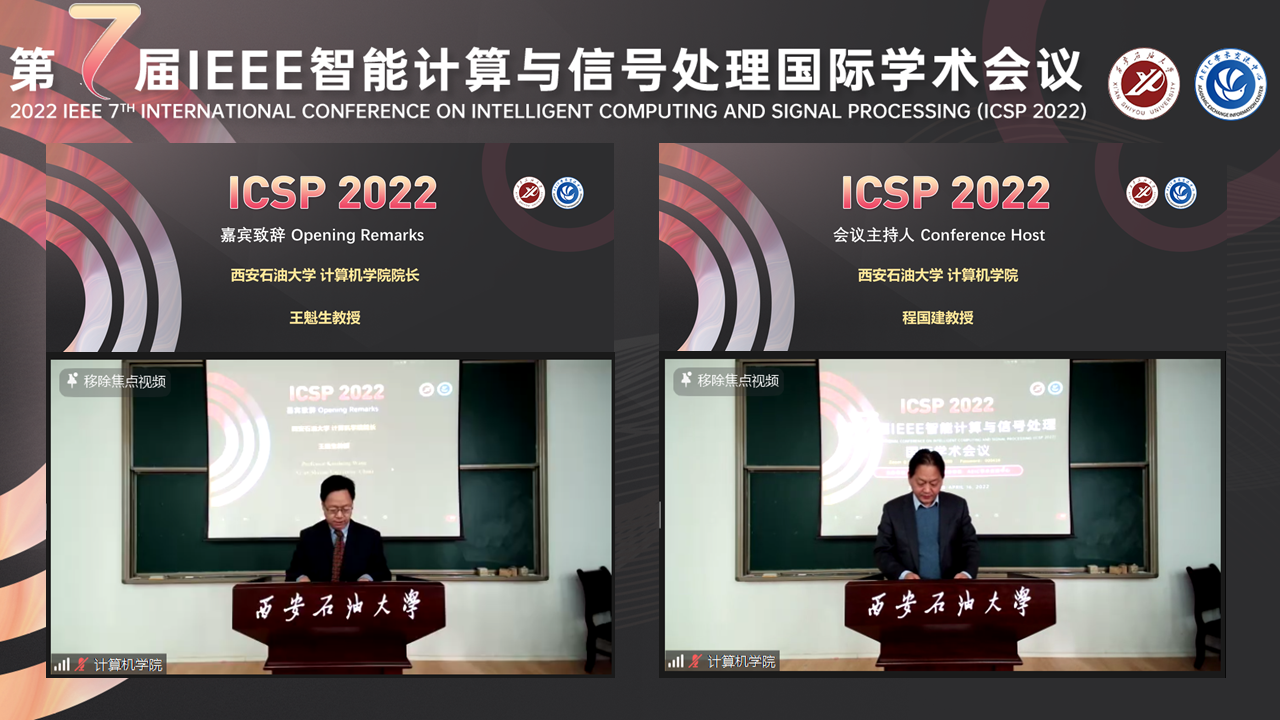 |
| Keynote Speakers |
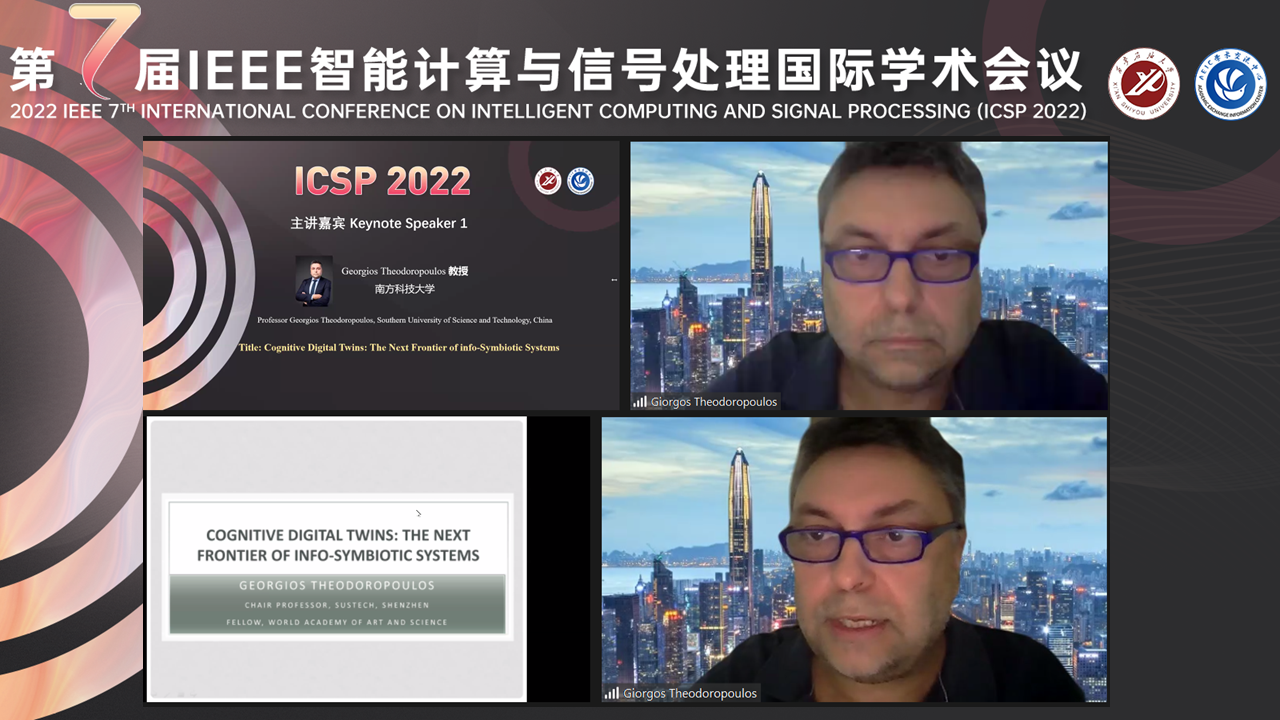 |
Fellow of the World Academy of Arts and Science Prof. Georgios Theodoropoulos,Southern University of Science and Technology, China |
| Title:Cognitive Digital Twins: The Next Frontier of info-Symbiotic Systems |
Speech Abstract:
Info-symbiotic systems provide a unique proven paradigm to construct integrated ecosystems of systems, models and data and enable trustworthy, explainable, holistic and contextual analytics at a grand scale. Recent years have witnessed an explosion of utilisation of info-symbiotic systems, in the form of Digital Twins, in a wide range of domains, from manufacturing and health to smart cities. Incorporating intelligence and cognition in a Digital Twin will unlock the full potential of this disruptive technology, providing seamless integration and info-symbiotic collaboration between the physical and virtual worlds and capturing the increasing complexity and uncertainty of the problems society is facing. The talk will outline a roadmap towards cognitively rich Digital Twins, discussing challenges, opportunities and some concrete examples.
|
| IEEE Fellow Prof. Zhiwu Li, Xidian University, China |
| Title: Deadlock Analysis and Control of Resource Allocation Systems: Structural and Reachability Graph Approaches |
Speech Abstract:
This talk exposes the recent advances of deadlock problems in resource allocation systems using Petri nets. The pertinent methodologies are categorized by structural analysis and reachability graph analysis techniques. The former, without enumerating the reachable states of a system, utilize structural objects to derive a liveness-enforcing supervisor, while its structure can be compact. The latter can usually lead to an optimal supervisor with a minimal control structure subject to a full state enumeration and solution to integer linear programming problems. Open issues in this area are outlined.
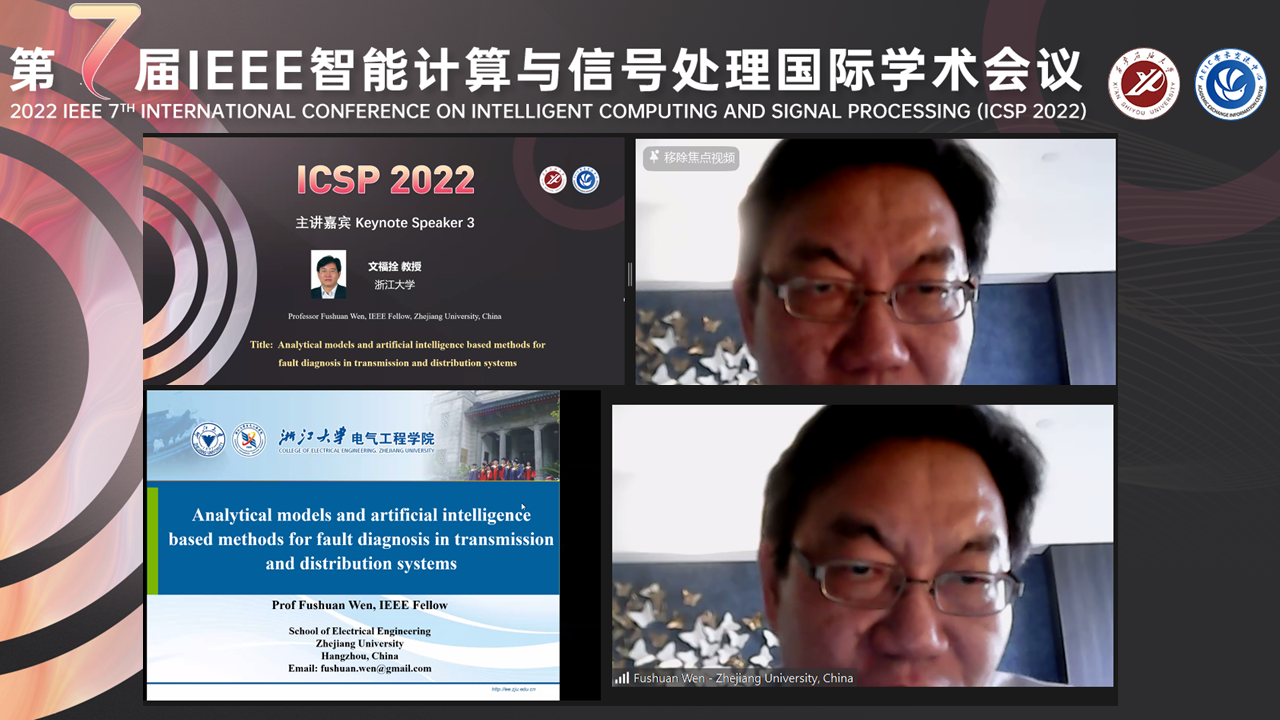 |
IEEE Fellow Prof. Fushuan Wen,Zhejiang University, China |
| Title:Analytical models and artificial intelligence based methods for fault diagnosis in transmission and distribution systems |
Speech Abstract:
In this speech, the research history of fault diagnosis in transmission and distribution (T&D) systems will be briefly reviewed first, and followed by a survey of existing fault diagnosis methods in T&D systems and their industrial applications. Analytical models and artificial intelligence based methods, developed by our team, for fault diagnosis in T&D systems will next be presented. This speech will be concluded by prospecting the challenges to be addressed and expected outcomes to be attained, regarding fault diagnosis in emerging modern power systems.
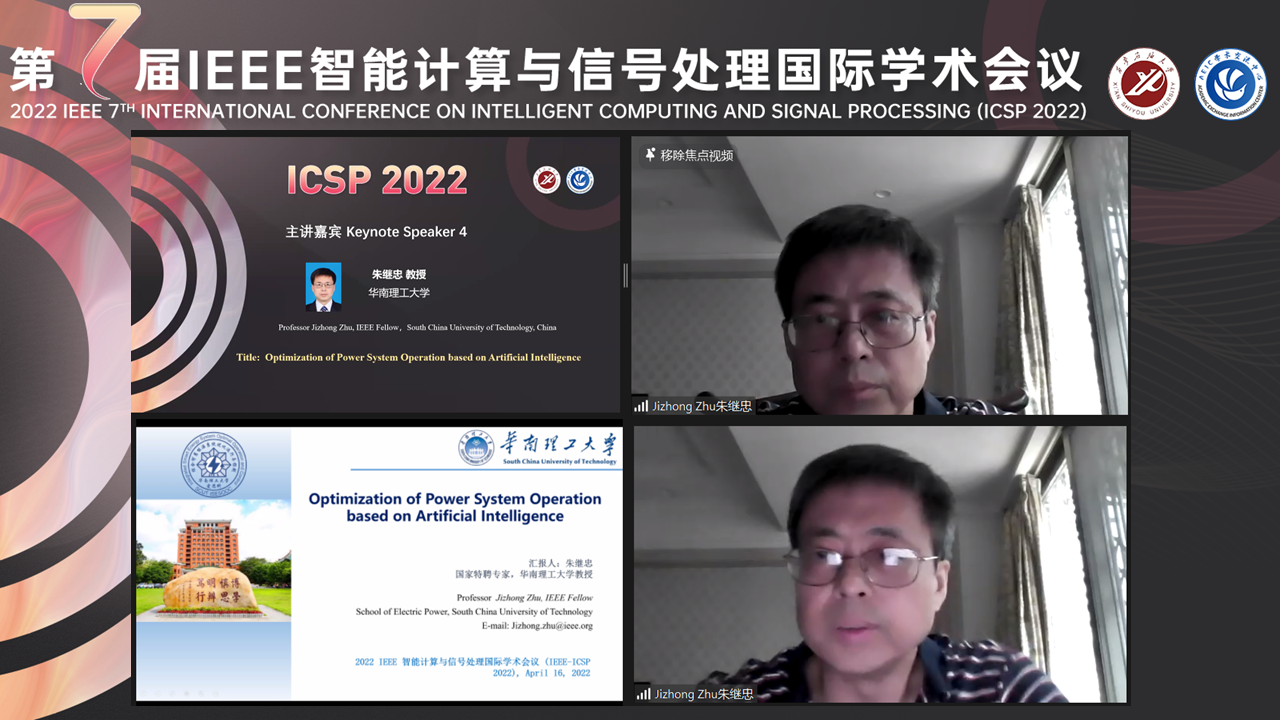 |
| IEEE Fellow Prof. Jizhong Zhu, South China University of Technology, China |
| Title: Optimization of Power System Operation based on Artificial Intelligence |
Speech Abstract:
There are a great amount of data as well as uncertain factors in power systems. Power system analysis & forecasting and power system dispatch & optimization are both long-standing subjects in power system operation. The traditional optimization methods may have some problem to solve these operation problems. AI based approach may be a better choice. However, single approach is more or less flawed, for example, AI approach can effectively solve the nonlinear and uncertainty problems but still own some disadvantages. Combining several kinds of models can take their advantages together. Some examples of power system operation problem are discussed in the presentation.
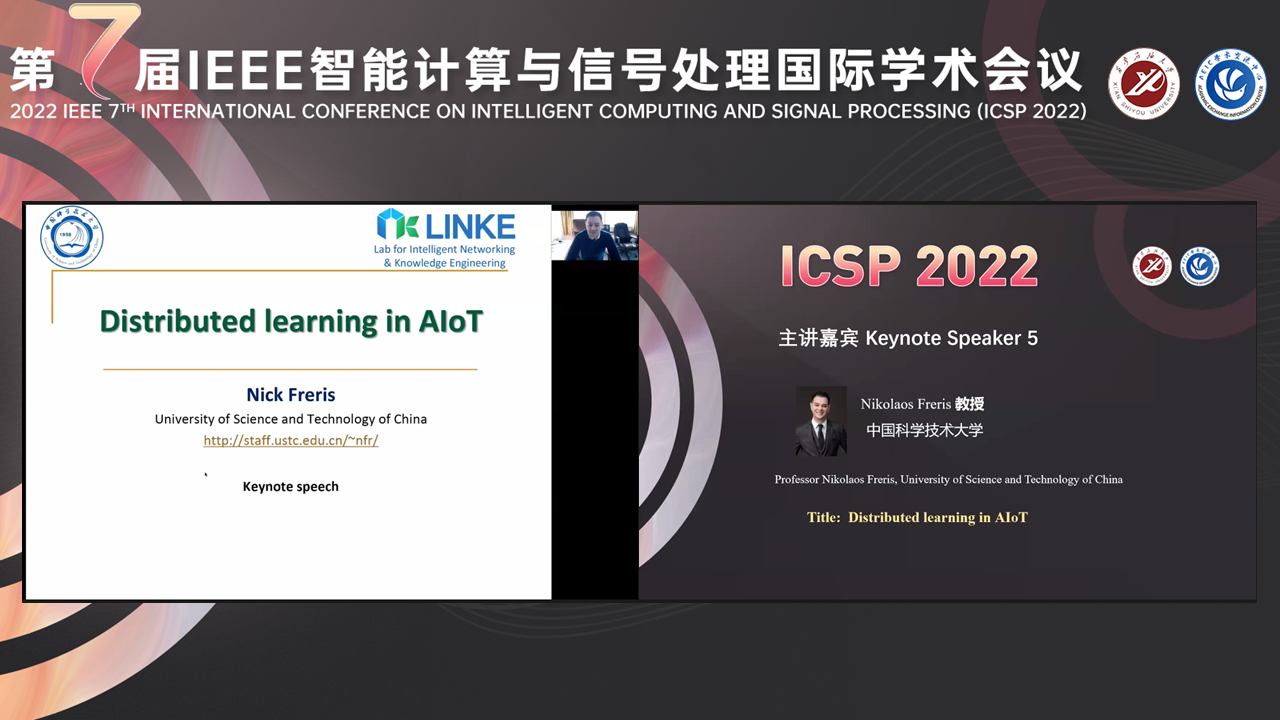 |
Prof. Nikolaos M. Freris, University of Science and Technology of China (USTC) |
| Title: Distributed learning in AIoT |
Oral Speakers |
